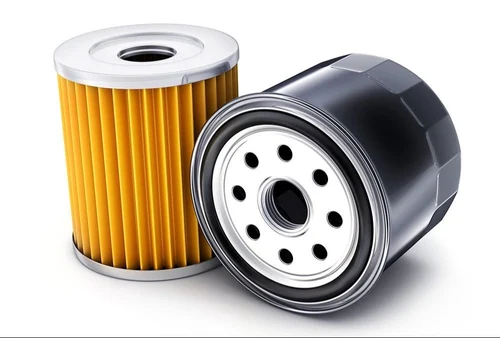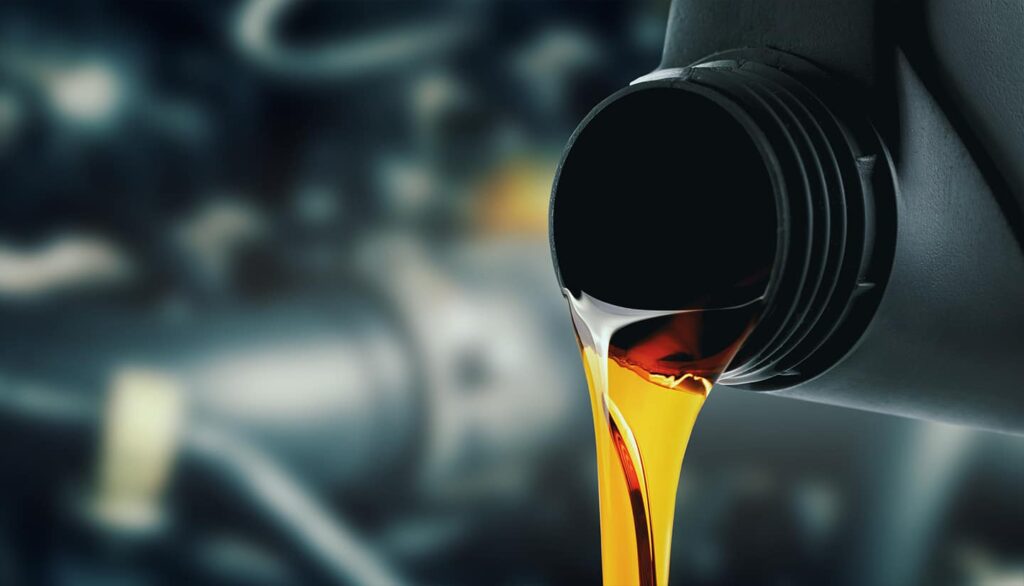No, not all Hondas use the same oil filter. When I first bought my Honda Accord, I learned this the hard way; I mistakenly ordered a generic filter, only to find it didn’t fit. Always check your owner’s manual to ensure you’re using the right filter for your specific model.
Do all Hondas use the same oil filter? No, not all Hondas use the same oil filter. Each model has specific oil filter requirements based on engine design and type. To ensure optimal engine performance and longevity, it’s best to consult your owner’s manual for the correct oil filter for your Honda vehicle.
Do all Hondas use the same oil filter? Using the correct oil filter is essential for maintaining your Honda’s performance and longevity. Don’t make the same mistake I did—always verify the specifications to keep your engine running smoothly.
What Is An Oil Filter And Its Function?

An oil filter is a crucial component of an engine’s lubrication system. Its primary function is to remove contaminants and impurities from the engine oil, ensuring that only clean oil circulates through the engine.
This helps maintain optimal engine performance, reduces wear and tear on moving parts, and prevents sludge buildup. By filtering out dirt, metal particles, and other debris, the oil filter plays a vital role in extending the life of the engine and ensuring it operates smoothly. Regularly changing the oil filter is essential to keep the engine healthy and efficient.
Types Of Oil Filters:
Oil filters come in several types, each serving a unique purpose. Spin-on oil filters are the most common; they come as a single unit that easily screws onto the engine, making them simple to install and replace.
Cartridge oil filters consist of a removable filter element and a separate housing, requiring a bit more effort to change but providing effective filtration, often found in newer vehicles. Magnetic oil filters use magnets to attract metal particles from the oil, offering extra contamination protection when used alongside standard filters.
Bypass oil filters only filter part of the oil flow and are typically used with regular filters, making them suitable for high-performance engines. Full-flow oil filters filter all the oil circulating through the engine and are standard in most cars, ensuring comprehensive cleaning for better engine protection.
Finally, high-performance oil filters are designed for racing or high-performance applications, offering enhanced filtration for extreme driving conditions. Choosing the right oil filter is essential for maintaining your vehicle’s engine health.
Common Oil Filter Models For Hondas:
While there are numerous oil filters used across Honda’s lineup, some of the more common models include:
- Honda 15400-PLM-A02: This is often used in several Honda models, particularly older models of the Civic and Accord.
- Honda 15400-PLM-A01: This filter is commonly found in newer models of the Honda Accord and CR-V.
- Honda 15400-RTA-003: This filter is typically used in the Honda Fit and HR-V.
These part numbers demonstrate that there is no single filter used across all Honda vehicles.
Do All Hondas Use The Same Oil Filter?
No, not all Honda vehicles use the same oil filter. The oil filter specifications can vary depending on the model and engine type. Each Honda model is designed with specific oil filter requirements to ensure optimal engine performance and protection.
While some models may share the same filter, many others will require different filters tailored to their unique designs. To ensure you are using the correct oil filter for your Honda, it’s best to consult your vehicle’s owner manual or check with a Honda dealer. Using the right oil filter is essential for maintaining engine health and longevity.
What Factors Affect How Often To Change Your Oil?
Several key factors influence how often you should change your car’s oil. First, the type of oil matters; conventional oil typically needs changing every 3,000 to 5,000 miles, while synthetic oil can last up to 10,000 to 15,000 miles.
Your driving habits also play a role—frequent short trips and stop-and-go traffic can lead to faster oil breakdowns. Additionally, the age and condition of your vehicle are important; older cars may need more frequent changes.
Always check your manufacturer’s recommendations in the owner’s manual for specific guidelines. Finally, consider your driving environment; dusty roads and heavy loads can wear out oil faster. Keeping these factors in mind will help keep your engine healthy.
How To Choose The Right Oil Filter For Your Honda
Choosing the right oil filter for your Honda is essential for maintaining engine performance. Here are some simple steps to help you select the best filter:
- Check Your Owner’s Manual: Your vehicle’s owner’s manual will provide specific recommendations for the oil filter type and specifications.
- Consider OEM Filters: OEM (Original Equipment Manufacturer) filters are designed specifically for your Honda model. They often offer the best compatibility and performance.
- Research Aftermarket Options: If you opt for aftermarket filters, choose reputable brands that meet or exceed OEM specifications. Look for filters with good reviews and proven performance.
- Evaluate Filtering Capability: Look for filters that offer superior filtration efficiency. Higher-quality filters can remove smaller particles, which is especially important for newer engines.
Importance Of Using The Correct Oil Filter For Your Honda:
Using the correct oil filter is vital for ensuring that your Honda operates efficiently. Using the wrong filter can lead to various issues, including:
- Reduced Oil Flow: A filter not designed for your engine may restrict oil flow, leading to inadequate lubrication.
- Poor Filtration: An incompatible filter may not effectively remove contaminants, resulting in engine wear and damage over time.
- Leakage: A mismatched filter could cause oil leaks, which can result in significant engine damage if not addressed promptly.
How Often To Change Your Honda Vehicle’s Oil:
For Honda vehicles, oil changes typically depend on the type of oil and your driving habits. Most modern Honda models using synthetic oil recommend changes every 7,500 to 10,000 miles or every 12 months.
If you drive an older Honda or use conventional oil, you’ll need to change it more often, around every 3,000 to 5,000 miles. Driving in harsh conditions, like extreme temperatures or stop-and-go traffic, may also require more frequent oil changes.
Newer Hondas often come with a Maintenance Minder system that alerts you when an oil change is needed, helping you keep your engine in optimal condition.
Signs Of A Clogged Oil Filter:

A clogged oil filter can lead to severe engine problems. Here are some signs that your oil filter may need changing:
- Decreased Engine Performance: If you notice a decline in performance, it may indicate a clogged filter.
- Oil Pressure Warning Light: If this light illuminates your dashboard, it could mean that your oil filter is blocked.
- Unusual Engine Noises: A malfunctioning oil filter can lead to poor lubrication, causing engine parts to make strange noises.
Oem Vs. Aftermarket Filters:
When choosing an oil filter, you have two main options: OEM (Original Equipment Manufacturer) filters and aftermarket filters. OEM filters are made by the vehicle’s manufacturer and are designed to fit perfectly, offering reliable performance, but they tend to be more expensive.
Aftermarket filters, made by third-party companies, are usually more affordable. They can vary in quality, so it’s important to choose reputable brands that meet or exceed OEM specifications. Your choice depends on your budget and the specific needs of your vehicle.
Importance Of Filtering Capability:
When selecting an oil filter, the filtering capability is crucial for maintaining engine health. High-quality filters provide better filtration efficiency, removing smaller particles and contaminants from the oil.
This becomes especially important for newer engines, which often have tighter tolerances and require more precise filtration to protect sensitive components.
A filter with strong filtration capability helps ensure clean oil flows through the engine, reducing wear and prolonging engine life. Therefore, investing in a filter that offers superior filtering performance is key to keeping your engine in optimal condition.
Price Differences And Budget-Friendly Options:
The cost of oil filters can vary significantly based on brand, quality, and the retailer. Typically, OEM (Original Equipment Manufacturer) filters are more expensive than aftermarket options, but the long-term benefits of using an OEM filter, such as better compatibility and reliability, may outweigh the initial cost.
For those on a budget, several aftermarket brands offer reliable filters at lower price points. However, it’s essential to ensure that these filters meet or exceed OEM specifications to maintain engine health and performance.
Car Engine Type:
The engine type in your car can also influence how often you need to change the oil. Here’s how different engine types affect oil change intervals:
1. High-Performance Engines:
Engines in sports cars or luxury vehicles tend to generate more heat and operate at higher RPMs. These engines typically require more frequent oil changes, especially if conventional oil is used. Synthetic oil is often recommended for these engines, allowing for extended oil change intervals.
2. Turbocharged Engines:
Turbocharged engines work harder and generate more heat than naturally aspirated engines. This means oil breaks down faster, so oil changes may be needed more often, around every 5,000 to 7,500 miles, especially if you’re using conventional oil.
3. Diesel Engines:
Diesel engines operate under higher pressures, which can cause the oil to degrade faster. However, diesel oils are often formulated to last longer, with changes needed between 7,500 and 10,000 miles. Manufacturer guidelines should always be followed for diesel engines.
4. Hybrid or Electric-Assisted Engines:
Hybrid engines, which combine a gas engine with an electric motor, often consume less oil. Since the engine isn’t running constantly, the oil lasts longer, allowing for extended intervals between oil changes, sometimes up to 10,000 miles or more.
5. Older Engines:
Older engines or those with high mileage may require more frequent oil changes due to wear and tear, even if they aren’t turbocharged or high-performance. These engines may also benefit from high-mileage oil, which contains additives to protect aging components.
Different engine types have different needs when it comes to oil changes, and it’s important to follow manufacturer recommendations to keep your engine running smoothly.
Impact Of Oil Type On Change Intervals:
The type of oil you use significantly affects how often you need to change it. Conventional oil, which is less refined, usually requires changes every 3,000 to 5,000 miles due to its quicker breakdown under extreme conditions.
On the other hand, synthetic oil is more durable and can last between 7,500 to 15,000 miles before needing a change, making it ideal for high-performance engines or severe driving conditions.
Synthetic blend oil, a mix of conventional and synthetic, offers better protection and typically needs changing every 5,000 to 7,500 miles. High-mileage oil, designed for vehicles with over 75,000 miles, also falls within the 3,000 to 5,000-mile range, but its special additives help reduce leaks and prolong engine life.
Your choice of oil directly impacts the oil change interval, so it’s important to select the right type based on your vehicle and driving habits.
How Driving Conditions Affect Oil Change Frequency?

Driving conditions greatly influence how often you should change your oil. If you frequently drive in stop-and-go traffic, make short trips, or operate in extreme temperatures, your engine works harder, causing oil to degrade faster and requiring more frequent changes, typically every 3,000 to 5,000 miles.
Similarly, towing heavy loads or driving in dusty or off-road conditions introduces more contaminants into the oil, necessitating earlier changes. On the other hand, consistent highway driving is less taxing on the engine, allowing you to extend oil change intervals in line with manufacturer recommendations.
Adjusting your oil change schedule based on your driving environment helps keep your engine in top condition.
Faqs:
1. Can I clean and reuse an oil filter?
It’s not recommended to clean and reuse oil filters, as they are designed for one-time use and may not function effectively if reused.
2. Do oil filters have a shelf life?
Yes, oil filters can have a shelf life, typically around 5 years, even if they haven’t been used. Always check the manufacturer’s guidelines for specific details.
3. Is it necessary to use high-performance oil filters?
High-performance oil filters are beneficial for racing or high-performance vehicles but may not be necessary for standard daily drivers.
4. What is the purpose of a magnetic oil filter?
Magnetic oil filters use magnets to attract and capture metal particles in the oil, providing additional protection against engine wear.
Conclusion
Do all Hondas use the same oil filter? Choosing the right oil filter is essential for maintaining the health and performance of your Honda’s engine. Regularly changing the oil filter not only ensures that clean oil circulates throughout the engine but also helps prevent wear and tear caused by contaminants. Whether opting for OEM or aftermarket filters, it’s crucial to select high-quality options that meet or exceed specifications to ensure optimal filtration and engine protection. By understanding the importance of oil filter maintenance and staying informed about your vehicle’s specific requirements, you can help extend the life of your engine and enhance overall performance. Remember, a well-maintained engine is key to a smooth and reliable driving experience.

